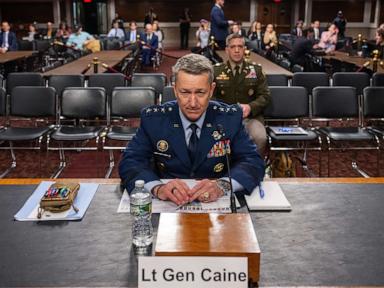Senators are wading into the thorny issue of whether to "lock the clock" — that is, end the practice of changing the time twice a year to account for the shifting seasons.
At a hearing Thursday, Senate Commerce Chair Ted Cruz said there was general consensus among his colleagues that Americans should stop changing the clocks by adopting permanent daylight saving time — which makes it light later in the evening and later in the morning — or permanent standard time, which does the opposite. But there isn't agreement on which standard to embrace.
The Senate unanimously passed legislation in 2022 from Sen. Rick Scott (R-Fla.) to create permanent daylight saving time without requiring states already on permanent standard time to make the move. The bill's passage at that time took many lawmakers by surprise, including those who said they would have hurried to the floor to block the request for speedy consideration had they known the measure was coming up for a vote. It later died in the House.
Scott said Thursday that President Donald Trump is “on board to lock the clock.” In December, Trump expressed support for ending the practice of changing time twice a year, but in March said it’s a “50/50 issue.”
He explained in remarks in the Oval Office, “If something is a 50/50 issue, it's hard to get excited about it. I assume people would like to have more light later, but some people want to have more light earlier because they don't want to take their kids to school in the dark."
A White House spokesperson declined to clarify Trump’s stance further.
But Commerce Committee members also said they wanted to make sure states have latitude to make their own decisions on whether to use permanent daylight or standard time, weighing economic and health trade-offs.
“There are very real and complicated issues and countervailing arguments on both sides,” Cruz said. “There is widespread agreement on locking the clock … but the reason we’re holding these hearings is because these are real arguments and they have real impacts on people.”
Lawmakers heard Thursday from advocates on both sides of the issue, including the CEO of the National Golf Course Owner's Association favoring permanent daylight saving time and a sleep medicine expert backing permanent standard time. Jay Karen, CEO of the NGCO, said that late afternoon golf activities account for a high share of revenue and that permanent daylight saving time would be a boon for outdoor recreation generally, leading to health benefits.
Karin Johnson, the sleep medicine doctor and member of the American Academy of Sleep Medicine’s advocacy committee, said permanent daylight saving time would be a “hidden mandate” that would wake Americans earlier and disrupt their circadian rhythms. She also pointed out that previous attempts to make this switch were abandoned. Permanent standard time would also lead to lower rates of depression and better sleep, she argued.
Cruz didn’t take a clear stance on whether he sided with permanent daylight saving time or standard time, but he argued that changing the clocks twice a year can indeed disrupt sleep.
“This leads to increased risks of health problems, including higher rates of heart attacks, strokes, and even car accidents immediately following the time change,” Cruz said.
Sen. Lisa Blunt Rochester (D-Del.) said it’s important lawmakers be “thoughtful” about how time changes work state by state.
“What works in my home state of Delaware may not work in Washington state,” Blunt Rochester said. “It’s time to figure this out. People across our country are tired of the constant cycle of falling back and springing forward.”




















